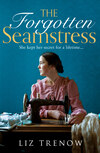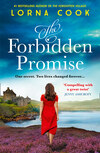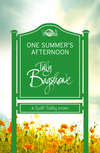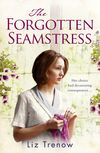Kitabı oku: «The Forgotten Seamstress», sayfa 2
Chapter Two
London, January 2008
‘Panic stations, darling. The Cosy Homes people are coming next week, and they say I have to clear the lofts before they get here, and Peter down the road was going to help me, you know, the man who suggested it all in the first place, but he’s gone and hurt his back so he can’t come any more and I don’t know what I’m going to do …’
My mother Eleanor is seventy-three and her memory’s starting to fail, so it doesn’t take much to upset her. Plus she’s always nervous on the telephone.
‘Slow down, Mum,’ I whispered, wishing she wouldn’t call me at work. The office was unusually quiet – it was that depressing post-Christmas period when everyone is gloomily slumped at their desks pretending to be busy while surreptitiously job hunting. ‘You’re going to have to tell me what all this is about. For a start, who are Cosy Homes?’
‘The insulation people. It’s completely free for the over-seventies, imagine that, and they say it will cut my heating bills by a quarter and you know what a worry the price of oil is these days so I could hardly refuse, could I? I’m sure I told you about this.’
I racked my brains. Perhaps she had, but with everything that had been going on in the past few days, I’d clearly forgotten. On our first day back after the break we’d received an email announcing yet another round of redundancies. Happy New Year, one and all! Morale was at an all-time low and the rumour mill working overtime. And, joy of joys, next week we were all to be interviewed by some of those smug, overpaid management consultants the company had called in.
I didn’t really want to be here anyway – it was only meant to be an ‘interim job’ to raise enough cash to realise my dream of starting my own interior design business. But the macho, target-driven environment, the daily bust-a-gut expectations and ridiculous deadlines had become surprisingly tolerable when I saw the noughts on my monthly pay slip and annual bonus-time letter. The financial rewards were just too sweet to relinquish. Especially now that I was newly single, with a massive mortgage to cover.
‘It’s okay, Mum,’ I said, distractedly scrolling down the recruitment agency website on my screen. ‘I was planning to come at the weekend, anyway. I’m sure we can get it sorted together in a few hours.’
I heard her relieved sigh. ‘Oh could you, dearest girl? It would be such a weight off my mind.’
My Mini can virtually drive itself to Rowan Cottage, home for the first eighteen years of my life. My parents moved there in the 1960s, after they married and my father was recruited by the new university that had recently opened on the outskirts of Eastchester. He was already in his fifties and there was a twenty-year age difference between them – they met at University College, London, where he had been her doctorate tutor – but it was a very loving marriage. I was born five years later, to the great joy of both.
When I was three years old, he and my grandfather were killed in a terrible head-on collision on the A12 in heavy fog. All I can recall of that dreadful night is two large policemen at the door, and the woman officer who held me when my mother collapsed. She took my hand and walked me down the lane in my pyjamas and slippers, clutching my favourite teddy, to be looked after by our neighbours.
My grandfather was fairly senior in the local police, and my father by then a noted academic, so the accident was widely reported, but no cause ever explained. When I turned seventeen and began to take driving lessons, I asked Mum who’d been at the wheel that night, whether anyone else had been involved or whose fault it had been, but her eyes had clouded over.
‘We’ll never know, dear. It was a long time ago. Best let sleeping dogs lie,’ was all she would say.
Thanks to my father’s life insurance policy she managed to hang on to the house and kept his spirit alive by displaying photographs in every room and talking about him frequently. He looked like a typical sixties academic, with his gold-rimmed glasses and baggy olive green corduroy jacket, leather-patched at the elbows, often with his head in a book or a journal. Mum always says that she fell for his eyes, a kingfisher blue so brilliant that they seemed to hold her in a magic beam every time he looked at her.
There he is, frozen in time, lighting his pipe, playing cricket at a family picnic, sitting in the car with our small dog, Scottie, on his knee. In the photographs he seems to wear a perpetual smile, although apparently he could also be impatient and bossy – traits which, alas, he seems to have passed on to me. I have also inherited his slight stature, blond hair, blue eyes and fair skin, although the genes that gave him a brilliant academic brain seem to have passed me by. I’m more like my mother in temperament: always daydreaming and with a tendency to become distracted.
Money must have been tight. We had few luxuries but I always felt happy and loved, and never overly troubled by the lack of a father in my life. Mum never had any other relationships, not that she let me know about, at least. ‘You should join a dating agency,’ I suggested once – such things appearing to my teenage self as exotic and daring.
She brushed away the suggestion. ‘What a stupid idea,’ she said. ‘Why would I want a new beau? I’ve got my house and my health, my friends and my singing. And I’ve got you, my lovely girl. I don’t need to go out dating at my age.’
I took the slip road off the A12 and into the peace of the lanes. After the urban sprawl and unlovely highways of outer London, North Essex is surprisingly rural and beautiful. At this time of year, furrows in the bare fields collect rainwater and reflect silver stripes of sky against the brown soil; giant elms and oaks stand leafless and black against the wide sky, and rooks gather in their branches each evening, their fierce cawing echoing across the countryside.
Every village is dominated by an outsized flint church, each with its tower reaching robustly towards heaven, built in medieval times by a landed gentry grown fat on wool farming, who sought to secure their seats in paradise. These days the villages still attract fat cats: sleek City types drawn here by the newly-electrified line to Liverpool Street, who worship the great god of annual bonuses and whose vision of paradise is a new Aga in the kitchen, a hot tub on the patio and a sports car in the double garage.
At the end of the lane, in a shallow dip between two gentle hills, is a small green clustered around with a dozen cottages and farm buildings now converted into the price-inflated dream homes of weary commuters. At the edge of the green is Rowan Cottage, once a pair of farm labourers’ houses, with a pantiled roof and dormer windows. It’s the scruffiest property around but, unlike most of the others, seems to be fully at ease with the landscape, as if it has always been there.
As a teenager I hated the isolation, and the fact that the last bus left our local town at the ridiculously early hour of nine o’clock. But Mum still loves it here. After her shockingly early widowhood, she gave up her own academic ambitions and took a job as a school secretary so that she could be at home for me. Then, when I was about ten, she took a part-time job as a lecturer at the local polytechnic and, on those days, my grandmother would pick me up from school, take me back to her house and indulge me with chocolate biscuits.
Granny Jean, my father’s mother, was a feisty old woman with strong views, who read The Times from cover to cover, finished the crossword in a few hours and always had a book or a notebook and pen at her side, and sometimes a needle, darning, sewing up a hem or taking in a seam.
I loved going to stay with her, even though she refused to have a television. After tea, she would read to me all the children’s classics: Wind in the Willows, the Just So Stories and, my favourite, Alice in Wonderland. Of course I was too young to get Carroll’s surreal humour, but I loved the illustrations, especially the ones of Alice with long hair held back with that trademark hairband, her white apron, puffed sleeves and blue stockings. Oh how I wanted long hair and a pair of bright blue stockings!
When I grew old enough, Granny taught me how to sew: embroidery stitches and some very basic dressmaking. One memorable weekend, when I was about twelve and desperate for the latest fashions, we made a lurex mini-skirt – I cringe to recall it, but this was the 1980s after all – which I adored but never had the courage to wear. I’m sure it was Granny’s influence which led me, in the end, to study fashion.
But after she died and there were just the two of us left, it became ‘Mum and Caroline against the world’, a close, almost hermetic relationship which has left me with an overdeveloped sense of duty and a fear of letting her down. Her job was demanding, dealing with unruly students and warring staff, and I sometimes wonder whether the stress of being a single working parent, on top of the grief of losing her husband and father-in-law on a single day, caused changes in her brain that, many years later, have resulted in the tragic and insidious onset of her dementia.
Mum’s face lit up when, after a second’s hesitation, she recognised me.
‘Caroline, dearest girl, how lovely to see you,’ she said, reaching out with skeletal arms. She used to be tall, with dark curly hair and high colour to her cheekbones, but she’s shrinking now and her hair is now almost pure white, her skin pale grey. She seems, literally, to be fading away.
‘Come in, come in, I’ll get the coffee on,’ she said, leading the way to the kitchen, all stripped pine and eighties brown-and-orange decor. Little has changed at Rowan Cottage since I left home, and my interest in interior design must surely have been triggered by my parents’ lack of it. Their minds were focused on higher matters; what did anyone care what the inside of their house looked like, or how ragged the furnishings, so long as they were still serviceable and comfortable?
As a teenager I was so embarrassed by what I perceived as my parents’ lack of style that I refused to invite friends home. These days I’ve come to accept that Mum feels comfortable here, and will never change it. Colours and patterns clash with joyous abandon, chintz loose covers fight with geometric cushions, Persian carpets lie alongside rugs in swirly sixties designs – quite retro cool these days. Books jumble higgledy-piggledy on cheap pine bookshelves that sag under their weight of words. Some of the furniture, such as the Parker Knoll chairs and G-Plan coffee table, is so old-fashioned that it’s become desirable again.
The bedrooms are built into the roof of the cottage, just two of them, each with a dormer window, so there is hardly any proper ‘attic’ above them. But the space between the walls and the angle of the roof has been converted into long cupboards, triangular in section and too low to stand up in, accessed through sliding doors in each bedroom. Despite their awkward shape these cupboards are spacious and, I knew, contained the junk of a lifetime. Clearing them was going to be a mammoth task.
My initial plan was to help Mum do a kind of ‘life laundry’, sorting out what she wanted to keep and giving the rest away. But the idea was stupidly ambitious and it soon became clear it was going to take far too long. We ended up hauling everything out of the cupboards and piling it up in my old bedroom, now a spare room.
Before long we had constructed a small pyramid: boxes of books and papers, old toys, trunks of clothes too good to give away but too outdated ever to be worn again, loose off-cuts of carpet, broken chairs, ancient empty suitcases, stray rolls of wallpaper and even several pairs of old-fashioned leather ice-skates, kept in case the pond should freeze over as it did in the seventies. We could sort it all out later, I reassured Mum, once Cosy Homes had done their work.
It was back-breaking, stooping inside the low spaces and lifting heavy cases and, after a couple of hours, the pyramid had become a mountain almost filling the room. My hands were black with dust and my hair full of cobwebs.
‘However did you manage to accumulate so much stuff?’
Mum gave me a stern look. ‘It’s not all mine. Some of it belongs to you, all those toys and children’s books you wouldn’t let me give away. If only you’d move into a proper house you’d have room for it.’
I hadn’t told her yet, but the prospect of living in a ‘proper house’ and having any need for toys and children’s books was looking extremely remote. A few weeks ago, just before Christmas, my boyfriend Russell and I had, by mutual consent, decided that our five-year relationship was really going nowhere, and he’d moved out. Of course I was sad, but relieved that we’d finally made the decision, and ready to enjoy my newly single status. At least, that’s what I tried to convince myself although, to be totally honest, what I mostly wanted was to find the right man, whoever that was. At thirty-eight I am only too aware of the biological clock ticking ever more loudly as each year passes.
‘Not just the baby things,’ Mum was saying, ‘there’s Granny’s stuff that I’m keeping for you.’
‘I’ve already got the books, the clock and the dining chairs she wanted me to have. Was there something else?’
‘There’s that quilt.’ She looked around vaguely. ‘It’ll be in one of these bags, somewhere.’
‘The patchwork thing that used to be on her spare bed? She used to tell me stories about it.’
‘I wonder where it’s got to?’ She gazed, bewildered, at the mountain.
‘Let’s not get distracted. Just a couple more things to clear.’ I bent into the cupboard once again, crawling to its furthest, darkest corner. Almost the last item was an old brown leather suitcase. I hauled it out and, as I dusted it off, three letters embossed into the lid became clear.
‘Who’s A.M.M., Mum?’
She frowned a moment. ‘That’ll be your grandfather, Arthur Meredith Meadows. I wonder what …?’ She struggled to release the clasps, but they seemed to be rusted closed.
‘Why not give yourself a break, Mum? I’ll have a go at opening that later. Go downstairs and make yourself a cuppa. I can manage the last few boxes on my own, and then we’re done.’
When all of the loft spaces were cleared, I lugged the old suitcase downstairs into the living room and, with the help of a screwdriver and a little force, the locks quickly came free. Inside, on top of a pile of fabrics, was a faded yellow striped sheet.
‘It’s only old bed linen,’ I called through to the kitchen. ‘Shall I take it to a charity shop?’
Mum set down the tea tray. ‘That’s it,’ she said, her face lighting up, ‘the quilt we were talking about.’
She was right: the sheet was just a lining. As I lifted the quilt out and unfolded it right side out across the dining table, light from the window illuminated its beautiful, shimmering patterns and dazzling colours. True, it was faded in places but some of the patches still glittered, almost like jewels. Textiles, plain and patterned, shiny satins, dense velvets and simple matt cottons, were arranged in subtle conjunctions so that groups of triangles took on the shape of a fan, semicircles looked like waves on the sea, squares of light and dark became three-dimensional stairways climbing to infinity.
The central panel was an elegantly embroidered lover’s knot surrounded by a panel of elongated hexagons, and a frame of appliqué figures so finely executed that the stitches were almost invisible. And yet, for all the delicate needlework, the design of the quilt seemed to be quite random, the fabrics so various and contrasted it could have been made by several people, over a long period of time.
‘Did Granny make this?’
‘I don’t think so,’ Mum said, pouring the tea. ‘She liked to sew but I never saw her doing patchwork or embroidery.’
‘Why’s it been hidden away for so long?’
‘Not really sure. You wouldn’t have it on your bed – said it was too old-fashioned or something.’
‘Can I take it home with me now?’
‘Of course, dear. She always wanted you to have it.’
It was only when I went to fold the quilt back into the suitcase that something on its reverse side caught my eye. In one corner of the striped sheet backing, cross-stitched inside an embroidered frame like a sampler, were two lines set out like a verse. Some of the stitching was frayed and becoming unravelled, but I could just about make out the words:
I stitched my love into this quilt, sewn it neatly, proud and true.
Though you have gone, I must live on, and this will hold me close to you.
I read it out to Mum. ‘It’s a poem. Did Granny dedicate it to Grandpa? Or was it for Dad?’
‘Just a mo … I’m just trying to remember something.’ Mum rubbed her temple. ‘I don’t think it was Jean who sewed it. It was something she said once …’
I waited a moment, trying to be patient with my mother’s failing memory.
‘Something about the hospital …’
‘Eastchester General?’
‘No, the other place, you know? It might have been someone she met there. Oh, it’s all so long ago now,’ she sighed, wearily. ‘When your father was a boy. Had a bit of a breakdown, poor old thing.’
‘Granny had a breakdown? I never knew about that. She had to go into hospital?’
‘Not for long. Just till she’d got better. It wasn’t far from here …’
‘And you said she met someone there who might be connected with the quilt?’ I prompted, but it was no good. I could see she was exhausted now. I started my usual routine before leaving her: cleaning up the kitchen, sorting out the fridge, taking out the rubbish and making a sandwich for her supper.
When I returned to the living room she was fast asleep. I wrapped a rug around her and kissed her tenderly on the forehead. It tore at my heartstrings to see how vulnerable and old she looked these days, and I wondered how long it would be before she was unable to manage on her own.
Back at my flat in London, I unfolded the quilt across the spare bed, scanning both sides to make sure I hadn’t missed any clues, and re-read the cross-stitched lines of that sentimental little verse several times, as if by studying them long enough they might yield their secret. One thing was clear: it certainly wasn’t the sort of thing my feisty grandmother would ever have composed.
Chapter Three
Cassette 1, side 2
That was a nice cuppa, thank you dearie. Much needed. So where was I?
‘You and Nora were going into service. You had just arrived at the big house.’
Oh my lord yes. What a day! We was terrified, of course. Nora, me and Emily got bundled out and straight down some steps into the basement; the servants’ entrance, you see, away from the eyes of upstairs. We stood in a dark, echoey hallway for what seemed like an hour while they called someone to call someone else, and finally a maid came and said she was to take us to our room.
We said goodbye to Emily and dragged our bags up hundreds of stairs to our room, which had four beds in, and the two closest the fire was already taken so Nora and me put our things on the other two cots and waited for someone to come and tell us what to do. The room was bare and the beds narrow and hard, but we weren’t much bothered by that ’cos we didn’t know any different. While we waited, we opened the little parcels Sister Beatrice gave us and ate the biscuits she had wrapped inside – oatcakes with a sprinkle of brown sugar – and the taste reminded me so much of The Castle that I started snivelling all over again.
The maid came back and told us we must hurry now, as we must never keep Mrs Hardy waiting. It turned out that Mrs Hardy was the mountain of a housekeeper, the one who came to interview us. Her office under the stairs was not a large room and felt even smaller with her filling up most of the space.
‘Ah, you two, wherever have you been? Come and get your uniforms. Now!’ she bellowed. I started to say we haven’t been anywhere, Ma’am, but Nora dug me in the ribs and put a finger to her lips to remind me that we was not allowed to answer back, or do anything except be clean, neat, hardworking and obedient. Them nuns was so quiet spoken that we was petrified of the woman’s shouting but we soon learned that was how she usually talked to anyone beneath her station.
We grew used to life at the new place pretty quickly, Nora and me, and it wasn’t a bad one. It was nothing near as friendly as at The Castle, mind, but we just had to get on with it and we had hardly any free time to dwell on anything. Our uniforms was plain pale blue with black stockings and we got new black shoes, too, and it was a relief to get out of the clothes what was growing too small for us anyway.
There was hundreds of servants, not to mention the upstairs lot. The two maids who shared our bedroom had to get up early every morning to make fires so we barely had any time to speak with them. They was nice enough, but kept themselves to themselves, at least till we had been there a few weeks.
We spent our days in the needlework room doing mending for the household, and for the rest of the servants too, and there was only the three of us: the chief needlewoman, Nora and me. It was a small white painted room with no furniture save for the three cutting tables and hard chairs, with high wide windows and the floor painted white, too, what we had to sweep and wipe clean every day. There was no fire, on account of the coal dust would soil our work. Instead there was hot water pipes which we put our feet on when we was working, it were that cold sometimes.
The chief needlewoman, Miss Garthwaite, was surely the ugliest woman we’d ever seen. Not as large as Mrs Hardy, mind, but she made up for it with several double chins and warts on her eyelids and on her hands too. Though she tried very hard to hide them, if she ever touched us we’d shiver and have to make an excuse and run to the toilet to wash ourselves, just in case. Her voice was right posh and we wondered where she’d got that way of talking and how she’d ended up in service. We reckoned she must have been born to a good family but they couldn’t find anyone ugly enough to marry her and take her off their hands.
At first she treated us like we was something blown in off the street but after a few days she softened up, especially when she saw we was quite good at needlework. That didn’t stop us having a laugh at her expense: Nora would go on about finding a toad in the pond at the park and bringing it back to cure her. ‘My prince has come,’ she (that is, Nora) would say all hoity toity, ‘when shall we be married?’ And she’d give the toad (which was a rolled-up sock, or a pincushion) a great smacker on its slimy lips, and the toad (that was me in a deep growly voice) would say, ‘I may be able to cure you, Missus, but I ain’t marrying you, warts or no warts.’ We laughed a lot, Nora and me, when we was just the two of us against the rest of the world, or so it seemed.
They gave us three meals a day in the second servants’ hall and cocoa at night. The food was good, better than at The Castle, and in the evenings the people who weren’t cooking or serving used to sit by the fire and read and smoke and gossip, which is how we learned about who we were working for, and where we were living.
Well, you may not believe me, and the psychiatrist fella says I’m making it up, but it turns out that the grand lady of the house wasn’t a duchess after all, but had become a princess because, canny soul that she was, she’d married a prince, Prince George, who was about to be king because his old dad had died. King of England! And more than that, this place we was living in was Buckingham Palace! We nearly fell off our chairs when we first heard it.
She erupts into a chesty laugh, which turns into a cough.
Sorry about me cough. Don’t mind if I stop for a gasper, do you, always helps to calm it?
‘Please go ahead, Maria.’ The sounds of cigarette packet, lighter, an inward breath and a sigh that seems to clear the cough.
Of course I don’t expect you to believe me either, dearie, not many do. It sounds a bit unlikely, don’t it, little old me working at Buckingham Palace? But you can ask Nora – she was there. Well, we didn’t even believe it ourselves at first – thinking we must have understood it wrong but later we found out it was the truth. Fancy, Nora and me working for the future Queen of England! Her name was May, which seemed to us the most beautiful name in the world and after that, on the warm spring days when we was allowed out for walks in St James’s Park, we’d make ourselves daisy-chain crowns and dance under the hawthorn bushes pretending that we were both Queens of the May.
Well, the household was all at sixes and sevens because so many important occasions was about to take place. A coronation in June when May would become Queen Mary, and after that the oldest son, whose name is David, was to be what they call invested as Edward, Prince of Wales. Why those people had to keep changing their names was a mystery to us. What would be wrong with Queen May, or Prince David for that matter?
Of course we never met any of them because our lives was lived downstairs, and we weren’t involved in the planning because all the robes and gowns were made by official costumiers and designers and all the fittings took place in the royal rooms, where me and Nora had never been and never expected to. But there was such an air of excitement and tension everywhere, and because of so much coming and going, so many visitors and suchlike staying at the palace, we got more and more repairs to do: darning socks and stockings, mending torn seams, taking up hems, letting out or taking in darts.
We never knew whose clothes we was working on – Miss Garthwaite kept all that close to her chest – but we could tell they was just servants’ clothes. Not the housemaids or outside servants of course, but the housekeeper, the butler, the valets and the ladies’ maids, we did their mending because they were too busy to do their own and because they had to be dressed perfect every time they went upstairs.
After a while, Miss G came to trust us and started to give us more complicated work on interesting pieces which, we guessed, might belong to the lords and ladies, as some of them fabrics was so soft and beautiful, and the designs like paintings you would want to hang on your wall. Their names were strange to our ears – brocade and black bombazine, chiffon and crêpe de chine, cashmere and organzine – and this made sense when Miss G told us that most silks were called by French words, on account of the weavers who came across the Channel in the olden days.
Every now and again she was summoned upstairs to make a last-minute mend, or adjust a hem or a dart which the ladies’ maids or valets didn’t have time for, and this turned her into a right flap. When she got back she would be flustered and huffy, snapping at anyone who dared to talk. It would take her a good hour or so to recover her nerves.
As Coronation Day came closer there was more and more work for us, and Miss G got called more often, to the point that one day we thought she might just go pop with the stress of it all. She never said what she had been doing or who she had been helping, and we wasn’t allowed to ask her, but my curiosity was so keen I felt like a kettle boiling with its lid clamped on tight. When she went out and left us on our own we had a good laugh, Nora and me, and would sometimes get up and jump about a bit just to let off steam.
On the big day even the underlings like us was allowed to look out of a window on the fourth floor which overlooked the palace gates and The Mall. Well, I’ve never seen so many people in one place, not before nor since. There must have been millions, like when you stir up an ants’ nest by mistake and they all come swarming about, only this lot were so packed in there was no room for them to move, so they were just standing and waving.
There was a long procession of red and gold uniforms on horseback and eventually there was the top of the coach which looked like a crown itself, and though of course we couldn’t see inside ’cos we were looking from so high up, they told us it was Prince George and Princess May, who would come back as King George and Queen Mary. When the crowd saw the coach we could hear a cheer like a roar of thunder which went on for the whole time till everyone had passed, and then we had to go back to work.
In the evening we was told there’d be a ten-course banquet for a hundred guests and the chefs and kitchen staff were frantic so we kept well out of their way, and after our supper we were sent back to work because Miss G kept getting summoned upstairs to help the ladies’ maids and valets with emergency repairs to ballgowns and penguin suits.
The following day the fuss and bother continued, what with all the visiting royalty, and our meals were weird and wonderful left-overs from the banquets: I had never eaten venison before and I was enjoying it till they told me it was deer, them pretty little animals we used to spy in the parks in the early mornings, and then I lost my appetite for it.
That day we overheard conversations in the staff quarters about the prince’s birthday celebrations, and how because he was next in line to the throne he would become king when his father died. There was a deal of discussion about who he would marry – German royalty or Russian? I remember feeling sorry for him, thinking how strange it must be to have your life all mapped out for you. Of course I never understood that I had precious little control over what happened to me, neither. Like all young girls I believed I would fall in love and marry who I liked, and if they had enough money we could have our own little place and not live in servants’ quarters for the rest of my life. If only I’d known what life had in store – what a joke fate would play on me.














